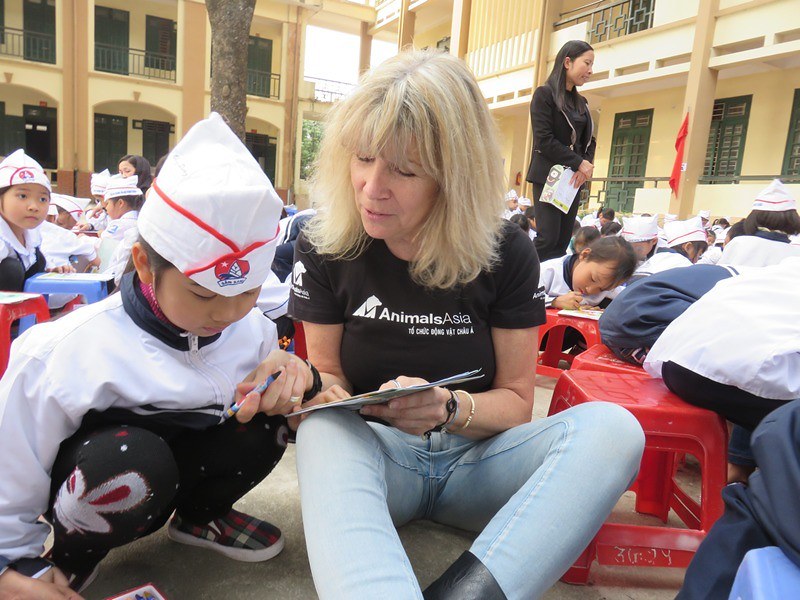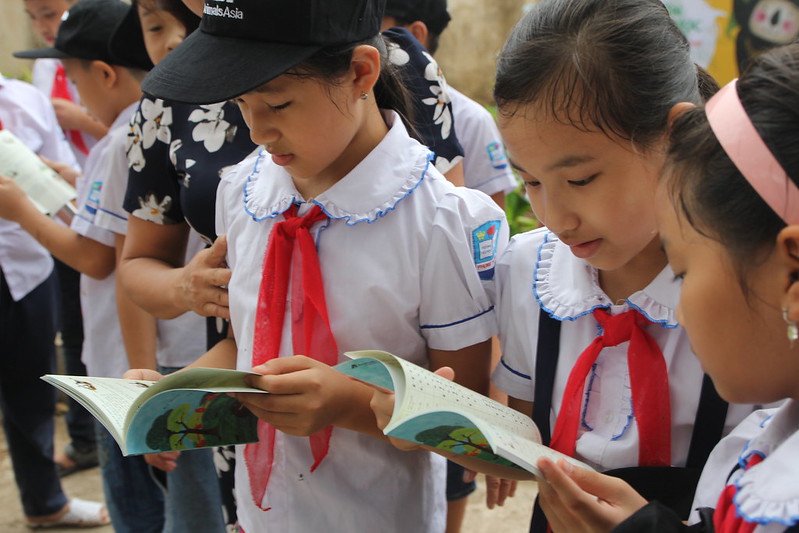#WorldAnimalDay: Education affects perception, behaviour and policy – and that is how we’ll change the world
04 October 2018, 16:34PM
It is easy to be weighed down by the horrors of animal abuse. On the news, on our phones, on the net – it can feel as if we are drowning in a world of atrocity.
But reality, of course, is more nuanced than the media news cycle can portray.
Many of us spend our whole lives advocating animal welfare and standing up for animals in desperate situations, wondering what is wrong with the human animal and how, as a species, we can be so blind to suffering and pain. But then I remember how I got into this.
One of the first welfare issues that really shook me up was fur. It wasn’t seeing others causing cruelty to animals which drove my anger, it was the realisation that it was me.
Out of ignorance, I had bought a fur coat. A cosy image of the animals being “ranched” had convinced me that, somehow, they hadn’t suffered for my vanity.
Similarly, in Vietnam and China, every day, thousands of people buy dog meat or bear bile or tickets to an animal circus, not because they are cruel, but because they are ignorant of the facts behind their purchases too.
Teaching one life
All kinds of educational triggers can spark the eureka moment when people realise the sentience of animals.
For many it is living with a companion animal such as a dog or a cat. Sharing your life with an animal, realising their sentience and the complexity of their welfare needs, can be a moment of awakening.
In China and Vietnam, companion animal ownership has exploded in the last five years, and as a result, the vast majority of young people are choosing not to eat dog meat like their parents.
Millions more have made the connection between the emotional complexity of their companion and the needs and desires of other animals – including those languishing in substandard zoos, animal circuses and bile farms.
But we aren’t yet at a point of critical mass – a stage where the weight of public opinion affects policy. We know this because protection for animals has not yet been enshrined in law.
The message, that every animal has just one life which they value and cherish every bit as dearly as we do our own, must reach a wider audience and find its way out of the subconscious into the conscious minds of us all.
This is why Animals Asia is working on bringing animal welfare into the Chinese educational curriculum.
Already, we have trained over 350 teachers in animal welfare concepts and are in the process of finalising an animal welfare textbook to be published in 2019.
This is the level of systematic knowledge sharing which is necessary. We can’t only speak to the converted, or the easily reached animal lovers – we have to speak to the whole of society. Only then will the weight of public opinion be enough to create the policies which can protect animals from cruelty.
The future framework of compassion

We know that changes to policy make the world of difference. In the past, the authorities in China would routinely take brutal steps to deal with large stray animal populations.
Fearful of rabies, thousands of dogs at a time would be rounded up and brutally killed. That is just how it was done.
But since we started working with government officials, we’ve been able to encourage new, more humane methods.
Instead of culls, multiple provinces now deploy trap, neuter, return programmes to control stray cat populations, and run responsible dog ownership clinics to reduce the number of animals abandoned to the streets. Rarely do we hear of dog culls in China today.
In Vietnam, bear bile farming used to be just another business. Then it was a tolerated problem. Now it is distasteful and completely against the law, and by 2022 every farm will be closed and every bear sent to sanctuary.
We know the same can happen to the animal cruelty so common in entertainment. Already, the Vietnam government – spurred on by our exposés of cruel events – has made it clear it wants all “uncivilized” festivals to end with many having been shut down already.
Animal cruelty must be de-normalised. It must be removed from everyday activities and pushed to the margins if wider society is to conclude it cannot be tolerated.
One of our chief priorities in Vietnam now is targeting the country’s animal circuses.
We’re still in a position where most people have never contemplated what goes on behind the scenes: How an elephant comes to be balancing on a stool, a goat walking on a tightrope, or a young moon bear riding a motorbike.
The poaching of animals from the wild, the trafficking of endangered and protected species, brutal training, prison-like living conditions and a lifetime of misery go unseen by the crowds.
Instead they see the bright lights and the spectacle. And they laugh. Not because they are cruel. But because they are ignorant of the facts.
Our exposés this year have made animal circus a huge issue in the Vietnamese media. Animal welfare and cruelty are being debated, people are questioning society’s norms, but ultimately the only way to reach all the people is for such practices to be banned.
The animals need welfare laws to protect them from cruelty, and to change the social status quo. Wide-scale education surrounding animal sentience is necessary to usher in this huge social change.
We must all realise that although we humans cannot understand their myriad forms of communication, animals have deep inner lives, with physical and emotional needs. They still have thoughts, emotions, needs, wants and relationships.
They may never write books or visit the moon like us, but in suffering animals are our equal.
So instead of despairing at the cruelty of humankind, I join those working to educate. Because only education can defeat ignorance. With knowledge, societies all over the world can create a future where the one life of every creature is not just considered in our daily lives, but is respected and protected throughout theirs.
Recent Posts
Festive fun at our sanctuaries
December 19, 2024








